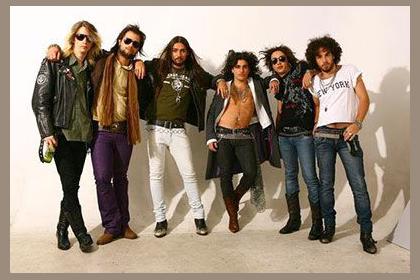 Lesbians
Lesbians
Lesbians: The Evolution of an Iconic Queer Punk Trio
Emerging from the vibrant underground scene of Los Angeles in the early 2000s, Lesbians quickly established themselves as a force to be reckoned with in the queer punk landscape. Fronted by the enigmatic and outspoken Kat Bjelland, the band's explosive performances and raw, visceral lyrics resonated deeply with LGBTQ+ audiences.
Formation and Early Years
Lesbians was formed in 2001 by Bjelland, a former member of the legendary punk band Babes in Toyland. Joined by bassist Dusty Trails and drummer Heather Dunn, the trio immediately gained attention for their confrontational stage presence and unapologetic queer identity. Their debut single, "Baby Please Don't Leave Me," became an anthem for queer women across the country, capturing the complexities of love, heartbreak, and longing.
Challenges and Controversies
Throughout their career, Lesbians faced numerous challenges and controversies. Bjelland's outspoken nature and the band's explicit lyrics often drew criticism from conservative groups. However, they remained defiant in their refusal to conform to mainstream expectations. Their provocative performances and confrontational lyrics pushed boundaries and sparked important conversations about queer visibility and representation.
Discography
Lesbians released three studio albums during their tenure:
* Lesbians (2004)
* The Weirdness (2007)
* Wicked Hour (2015)
Each album showcased the band's signature blend of punk, grunge, and experimental elements. Their music explored themes of love, loss, addiction, and the struggles of being a queer person in a heteronormative society.
Members
* Kat Bjelland: Lead vocals, guitar
* Dusty Trails: Bass guitar, vocals
* Heather Dunn: Drums, vocals
Legacy and Influence
Lesbians disbanded in 2018, leaving behind a lasting legacy in the queer music scene. Their blend of raw emotion, confrontational lyrics, and unapologetic queerness inspired countless artists and fans. Their music continues to resonate with LGBTQ+ audiences today, providing a soundtrack for the struggles, triumphs, and resilience of being a queer person.
Emerging from the vibrant underground scene of Los Angeles in the early 2000s, Lesbians quickly established themselves as a force to be reckoned with in the queer punk landscape. Fronted by the enigmatic and outspoken Kat Bjelland, the band's explosive performances and raw, visceral lyrics resonated deeply with LGBTQ+ audiences.
Formation and Early Years
Lesbians was formed in 2001 by Bjelland, a former member of the legendary punk band Babes in Toyland. Joined by bassist Dusty Trails and drummer Heather Dunn, the trio immediately gained attention for their confrontational stage presence and unapologetic queer identity. Their debut single, "Baby Please Don't Leave Me," became an anthem for queer women across the country, capturing the complexities of love, heartbreak, and longing.
Challenges and Controversies
Throughout their career, Lesbians faced numerous challenges and controversies. Bjelland's outspoken nature and the band's explicit lyrics often drew criticism from conservative groups. However, they remained defiant in their refusal to conform to mainstream expectations. Their provocative performances and confrontational lyrics pushed boundaries and sparked important conversations about queer visibility and representation.
Discography
Lesbians released three studio albums during their tenure:
* Lesbians (2004)
* The Weirdness (2007)
* Wicked Hour (2015)
Each album showcased the band's signature blend of punk, grunge, and experimental elements. Their music explored themes of love, loss, addiction, and the struggles of being a queer person in a heteronormative society.
Members
* Kat Bjelland: Lead vocals, guitar
* Dusty Trails: Bass guitar, vocals
* Heather Dunn: Drums, vocals
Legacy and Influence
Lesbians disbanded in 2018, leaving behind a lasting legacy in the queer music scene. Their blend of raw emotion, confrontational lyrics, and unapologetic queerness inspired countless artists and fans. Their music continues to resonate with LGBTQ+ audiences today, providing a soundtrack for the struggles, triumphs, and resilience of being a queer person.